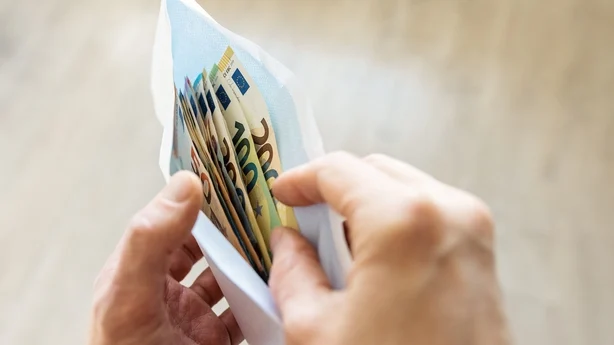Over the last four years, with the rise of Zoom and Teams meetings, working from home and flexible hours, many people built up a tidy sum in savings – much more than they could ever have normally as during the pandemic they had fewer places to spend it initially.
The cost of living rises, increases in interest rates and general economic pessimism in the last 18 months has no doubt cleared some of those savings but there is a huge amount of savings still in the country (€4.4 billion for instance in Prize Bonds alone).
Here, John Lowe of MoneyDoctors.ie suggests five prudent uses for those tucked away savings.

1. I have always recommended you should have between three and six months' net annual income in your Rainy Day Fund for 3 reasons:
- Emergencies (your clutch goes)
- Sudden loss of income (you are put on a three-day week)
- Investment opportunity (your first house deposit)
So this is a good time to check your RDF and ensure liquidity is maintained.
2. Pay off short term high interest debt – that kills your income, which is your number one asset. You should allow a maximum 35% of your net annual income to maintain your financial commitments (mortgage/rent, car loans, personal loans, family loans etc) so if you do have short term debt, make additional payments to pay it off more quickly or pay if off altogether if you can.
This includes credit card debt (you could transfer it to An Post Money – they give you 12 months to repay at 0% interest) and home loans (the cheapest form of borrowing in Ireland). I would leave those two alone or until you have surplus funds in addition to your other requirements to address those liabilities.

3. The surplus then could be invested into a regular stock market saver account. Over any 10 year period, the stock market has always been the best return of any asset class: from 1991 to 2020 the average annual growth in the stock market was 10.72%.
The two regular savers I like in particular are Zurich's LifeSave Special Savings Plus account featuring their flagship fund Prisma – minimum €100 per month, maximum €2,500 – and Irish Life’s Pinnacle regular stock market saver account – minimum €250 per month featuring their flagship fund Multi Asset Portfolio fund (MAPS) with their unique safety feature Dynamic Shares to Cash.
This is a minimum five-year investment as there are reducing penalties from 5% to 1% for withdrawals during this period. After five years there are no withdrawal penalties, ideal for paying off third level fees. You can also invest lump sums into these saving accounts.

4. Pensions – there are 57.6% of the working population with absolutely no provision for their retirement other than hoping the weekly State Pension (€ 277.30) will still be there when they do retire. That’s why auto-enrolment is coming in next year – forcing employers to set up pensions for all employees. So if you do have some surplus funds you could pay a lump sum into a pension fund to maximise your tax relief to start the ball rolling.
Aged 40 to 50? You could invest up to 25% of your net relevant earnings. Don’t forget that if you are on the 40% tax rate, you will receive €40 for every €100 invested from the government. The surplus eligible funds would certainly help you achieve this as most employees cannot afford to pay anywhere near their eligible thresholds. Take advice here.
5. The Deposit Protection Scheme is still protecting, so your money is safe up to €100,000 per person per institution and all NTMA State Savings including prize bonds are guaranteed by the government. Alternative investment strategies include art, philately, numismatics, rock 'n roll memorabilia, wine investment, scripophily, first editions and precious metals (gold is at its highest value in recent weeks) so whatever you’re interested in, now you can pursue and profit from that interest.
Whatever you do, don’t let your money stagnate in a non-interest bearing account.
For more information click on John Lowe's profile above or on his website.
Disclaimer: The copyright of this article belongs to the original author. Reposting this article is solely for the purpose of information dissemination and does not constitute any investment advice. If there is any infringement, please contact us immediately. We will make corrections or deletions as necessary. Thank you.






